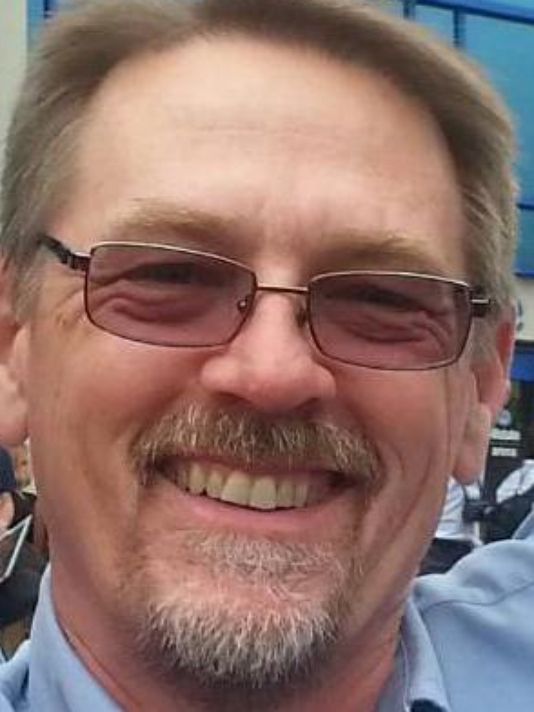Ignoring Wrongdoing Abets Wrongdoing
By David Clohessy
He is accused of making “unwanted sexual advances” toward seminarians, retaliating against one who rebuffed him, interfering with a church sexual misconduct investigation and concealing the crimes of predator priests. But he’s good enough for western Michigan Catholics, at least in the view of Kalamazoo’s Catholic bishop. He’s Archbishop John Nienstedt, a Michigan native who is one of only three U.S. prelates to resign from his post because of the church’s abuse and cover-up crisis. The archdiocese he headed for seven years, St. Paul-Minneapolis, is the first in the nation to be charged with failure to protect children. Exactly why did Nienstedt step down? Because he won’t talk, nor will his church colleagues in the United States or in Rome, no one really knows. Was it because his archdiocese faces pending criminal charges for shielding the Rev. Curtis Wehmeyer, who is behind bars now for raping boys? Or was it because some 10 sworn statements accuse Nienstedt of “sexual impropriety” in his last three assignments,” according to Commonweal, a respected Catholic news source. Most of the accusers are former Michigan seminarians, though there are also allegations of sexual advances toward at least two priests. Or was it because, as Minnesota Public Radio reported, “more than a dozen people in Minnesota, Michigan and Oregon with direct knowledge of the inquiry, (including) four people who provided affidavits” provided evidence that Nienstedt “tried to limit” an allegedly independent church investigations into the archbishop’s alleged sexual misconduct. We’ll likely never know, but this much we do know: Ignoring wrongdoing encourages wrongdoing. And while most institutions, companies and non-profits penalize wrongdoers, that happens very rarely in the Catholic hierarchy, especially once one achieves the exalted status of “archbishop.” And that’s one reason why at least 100,000 kids and countless vulnerable adults have been sexually abused by clerics in the church — because while some who commit sexual misdeeds are defrocked, demoted, disciplined or denounced, almost none who conceal those misdeeds ever suffer any consequences. “But Nienstedt no longer heads an archdiocese,” one might say. Technically, that’s true. But he retains his title — archbishop – and all the privileges that come with it: a pay check, health insurance, dental insurance, car allowance, and the prestige of belonging to a rarefied group. And thanks to Kalamazoo Bishop Paul Bradley, he also gets to perform sacraments and say mass and hear confessions and begin to ingratiate himself to, and win the trust of, and perhaps sexually exploit, even more young Catholics. Again, why take the risk? In nearly every other workplace, he’d be unemployed, for one or all of the allegations he faces. Kalamazoo Cataholic officials have already begun ducking, the dodging has already begun. Church spin doctors claim “It’s a temporary position,” “It’s a voluntary move, not an assignment,” “He’s just helping out because the pastor is ill.” But if the archbishop sexually assaults a 19-year-old devout Battle Creek teenager, will it hurt less because Nienstedt is there “voluntarily?” If he makes unwanted sexual advances to a vulnerable young adult in Michigan, will it be less devastating because Nienstedt hasn’t been officially assigned to Michigan? If, God forbid, suspicions of clergy sex crimes arise in a Kalamazoo-area parish, will it be less harmful if Nienstedt ignores or conceals them because he’s only around “temporarily?” The reasons, roles or duration of Nienstedt’s work in Michigan are irrelevant. What really matters is how he has behaved in clergy sexual abuse and misconduct and cover up cases. And plenty of evidence shows and suggests that he’s acted recklessly, callously and deceitfully, time and time again with many of the 66 publicly accused predator priests in the Twin Cities archdiocese. And there’s another consideration that matters even more. It’s this simple question: Why take the risk? Why given a credibly accused wrongdoer a chance to inflict even more harm? Then, there’s the most dangerous dodge of all: “Isn’t it time to forgive?” Maybe so. Forgiveness is an individual choice. But putting a priest in a parish is a public act. It signifies to the faithful “Here’s a good, holy, safe, celibate man you can trust.” We can forgive the school bus driver who gets behind the wheel while drunk. But we can’t give him the keys to another busload of youngsters. That might be kind to the individual but mean to the kids and their loved ones. That would be folly, not forgiveness. Finally, in our view, two disturbing signals are sent by Nienstedt’s new position. Victims, witnesses, whistleblowers and betrayed Catholics are essentially being told “Your pain doesn’t matter. We’ll put any cleric anywhere we like.” And worse, Catholic employees are essentially being told, “No matter how much hurt you cause, if you’re a priest or bishop, you’ll always have a place on the Catholic church payroll.”
|
.
Any original material on these pages is copyright © BishopAccountability.org 2004. Reproduce freely with attribution.
